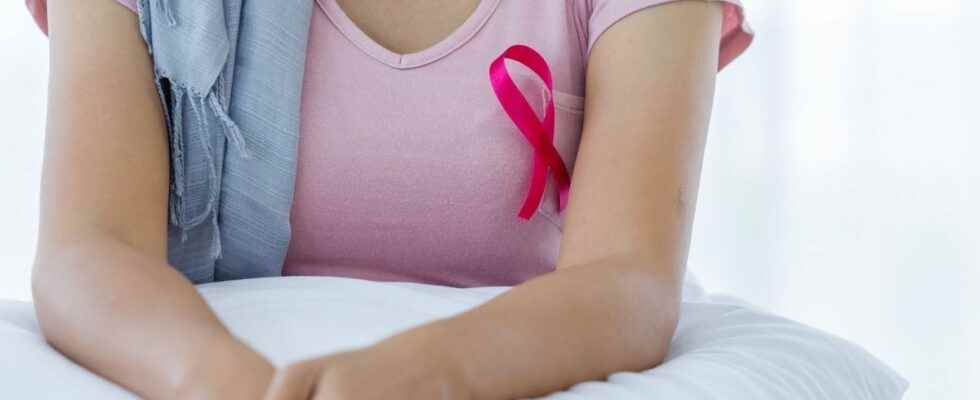Posted 21m ago,
Reading 2 mins.
Frequent cancer in women, breast cancer could have links with type 2 diabetes. A mechanism linking the two by blocking insulin has just been updated. Result: the two diseases are self-feeding. The opinion of Dr Ivan Pourmir, medical oncologist at the Georges Pompidou European Hospital.
Researchers from the University of California in San Diego (USA) have detailed the link between breast cancer and the blockage of insulin production. The resulting impaired blood sugar control could in turn promote tumor growth. Their results were published in the scientific journal Nature Cell Biology.
Vesicles responsible for blocking insulin
In their conclusions, initially established on mice, the researchers explain that they have discovered extracellular vesicles, kinds of spheres which contain a microRNA, called micro RNA-122.
“It is these spheres, released by the tumor, which will go through the blood to the pancreas, in the beta cells of the islets of Langerhans and block the release of insulin by the release of PMK” explains Dr Ivan Pourmir, a medical oncologist at the Georges Pompidou European Hospital in Paris. The objective of the tumor: to increase the concentration of glucose circulating in the blood to “feed” on it.
A model found in women
This mechanism observed in mice was subsequently studied in several women affected by breast cancer. Through a blood test, the same vesicles emanating from the tumor were found.
“The process as established in mice has not been as finely detailed in humans, however, there appears to be a parallel with the presence of these microvesicles in the blood of women affected by cancer. , their insulin level decreased and their glucose concentration increased” adds Dr. Pourmir.
Consult an oncologist online
A recovery tested in mice
Scientists reversed the situation in mice by treating them with slow-release insulin lozenges or a blood sugar-lowering drug known as an SGLT2 inhibitor.
After taking the treatments, normal glucose control was restored even in the presence of a breast tumor, which subsequently suppressed its growth. For Shizhen Emily Wang, PhD, professor of pathology at the University of California, San Diego School of Medicine, “these results confirm a greater need for diabetes screening and prevention among breast cancer patients and survivors.”.
For Dr Pourmir, other avenues, which can work at the individual level, such as ketogenic diets or intermittent fasting must be implemented in this type of situation, in parallel with conventional treatments for breast cancer.
